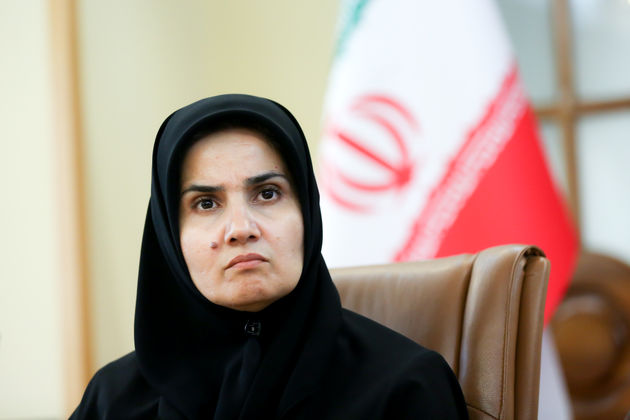In a piece published by dolat.ir, Laya Joneydi also explained the unlawful nature of US sanctions.
Here is the full text of this article:
Unilateral and extraterritorial US sanctions are undoubtedly against the principles of international law, including the principle of territorial integrity, the principle of non-interference in the affairs of other countries, the principle of free trade, the principle of equal sovereignty, and principle of democracy.
These sanctions (especially secondary ones), beyond the territory of the United States, affect companies and banks and businessmen based in other countries, interfere with the affairs of third countries, and impede free trade. They also question the equal sovereignty by imposing the will of the sanctioning government on the will of countries interested in having trade and economic relations with the sanctioned country. These sanctions ultimately weaken democracy by forcibly replacing the policy set by the parliament and the government of a third country that intends to cooperate with the sanctioned country, with the sanctioning government’s favourite policies.
In addition to violating the above principles and some other ones, regarding the relationship between Iran and the United States, the recent behaviour of the US is a violation of the international agreements and treaties because at least at the time of imposing sanctions agreements and treaties such as the JCPOA and the Treaty of Amity were in force.
Sanctions violate fundamental human rights when they hinder access to the general and basic needs of a nation, such as food, agricultural items, medicine, medical equipment, or transportation and monetary exchange.
Therefore, the International Court of Justice has issued an interim order to suspend sanctions in the above-mentioned fields, due to the urgency and necessity of the matter, before looking into Iran’s lawsuit against the United States.
The outbreak of the coronavirus and the need for medical and pharmaceutical items and equipment to prevent, diagnose and treat the disease have exacerbated the harsh, inhumane and, of course, illegal and unlawful nature of these sanctions.
This disease has shown that sanctions, in addition to violating obligations and customary rules and principles, inevitably violate basic human rights, as well as other principles of international law, such as the principle of cooperation between countries to control and contain such diseases. Because they encompass the right to life and health of the people and the security of human society, and are enshrined in the Charter of the United Nations and the documents of the World Health Organisation. Of course, the necessity of ending this type of policy is reminded both by legal standards and by the conscious consciences and moral values.
In fact, sanctions have posed a threat to the country’s health system, at least from two perspectives. First, it has discouraged pharmaceutical companies from providing the necessary medicines, equipment, and goods because of fear of losing market share or being fined for cooperating with sanctioned countries. On the other hand, if they accept the companies risk, the sanctions have eliminated the possibility of paying the money of goods and services due to banking restrictions on the transfer of funds. Therefore, cooperation with them is fruitless. More significantly, they have deprived countries under sanctions such as Iran of the financial resources, including the export of oil and petroleum products. By blocking these resources they practically target the country’s financial capacity to modernise and improve the health system.
The warnings of economists, health professionals and even politicians in recent days have all been based on the same worries, but in the case of infectious diseases such as the coronavirus, these risks are no longer limited to the sanctioned country because the transmission chain continues in the sanctioned country and it could endanger other people due to the survival of the disease.
Although the United States is trying to justify this practice with its domestic sanctions laws, and its representatives in international institutions and organisations vote in accordance with these laws, it should not be forgotten that these laws, in addition to violating the territorial sovereignty of other countries, are in conflict with the rules and principles of international law.
At the same time, they violate the special international obligations of countries to cooperate in controlling contagious diseases, especially epidemic diseases that are considered a threat to international peace and security, because such obligations can be an independent source and basis for international responsibility of governments.
This should convince the decision-making body of international financial institutions, including the International Monetary Fund, the World Bank, etc., that they must not consider unilateral and transnational sanctions that are contrary to international obligations, to be effective in reviewing requests and making decisions.
National courts, for example, have typically ignored US domestic laws and rejected the implementation of federal court verdicts that have been issued in accordance with these laws but are in conflict with international customary laws. A recent example is the decision of the Luxembourg Court of Appeals to release Iranian bonds. Of course, other administrative obstacles must be removed to restore these funds.
Thus, all of the above principles, rules and commitments are a valid basis for Iran to use active diplomacy to release its blocked assets. Moreover, the Islamic Republic must pursue getting loans from the International Monetary Fund to control and contain this pervasive disease. Iran should take the necessary legal steps to lift illegal sanctions that have been unilaterally and extraterritorially imposed as an obstacle to accessing funds and loans.
The Legal Department of the Iranian government, with the coordination and cooperation of the relevant executive bodies has taken the necessary steps for this purpose.
